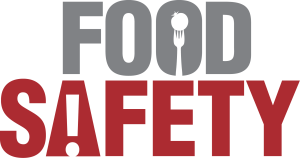Owning and managing a restaurant is a cherished aspiration for many, but it carries its fair share of challenges. Among the most critical aspects of restaurant operation is the assurance of food safety. Every year, numerous individuals suffer from foodborne illnesses, and restaurants risk substantial financial losses and harm to their reputation.

This is precisely where restaurant food safety insurance comes into play. In this article, we will delve into the importance of restaurant food safety insurance, elucidating its advantages and how it acts as a safeguard for both your customers and your establishment.
The Imperative of Restaurant Food Safety Insurance
- Safeguarding Patrons: The well-being and safety of your diners should always rank as your foremost concern. Restaurant food safety insurance offers protection in situations where a customer falls ill due to foodborne illnesses or food poisoning traced back to your establishment. This coverage assists in covering medical expenses and legal fees stemming from such incidents.
- Mitigating Financial Vulnerabilities: In the aftermath of a food safety incident, costs can swiftly accumulate. Expenses may include the recall of contaminated food, legal defense fees, or compensation to affected patrons. Restaurant food safety insurance serves to diminish these financial vulnerabilities, ensuring the fiscal stability of your business during challenging circumstances.
- Preserving Reputation: Within the restaurant industry, reputation is of paramount importance. A solitary food safety lapse can tarnish your restaurant’s image and deter patrons. Possessing insurance demonstrates your commitment to safety and responsibility, bolstering your restaurant’s reputation.
Key Areas of Coverage
- Liability Protection: Arguably the most pivotal facet of restaurant food safety insurance, it encompasses legal expenses, settlements, and medical costs in the event a customer takes legal action against your restaurant due to foodborne illnesses.
- Product Recall Reimbursement: In instances necessitating the recall of tainted food products, this coverage aids in offsetting costs related to the recall process, including disposal and communication expenses.

- Business Interruption Compensation: If a food safety incident compels the temporary closure of your restaurant, this coverage can reimburse you for income lost during the shutdown.
- Contamination Safeguard: This facet protects against financial losses incurred as a result of inadvertent contamination of food ingredients or products.
- Employee Training and Compliance Assistance: Some insurance providers offer resources and support for training your staff in food safety protocols, assisting in the prevention of incidents.

Conclusion
Restaurant food safety insurance transcends being merely optional; it stands as a necessity in the contemporary culinary realm. It guarantees the welfare of your customers, bolsters your restaurant’s financial resilience, and helps uphold your hard-earned reputation.
Committing to food safety insurance is akin to investing in the long-term prosperity and endurance of your restaurant. As a conscientious restaurateur, it is your duty to prioritize food safety and shield your business against unforeseen risks.
Read more : The Significance of Insurance for Wholesale Food Distributors
